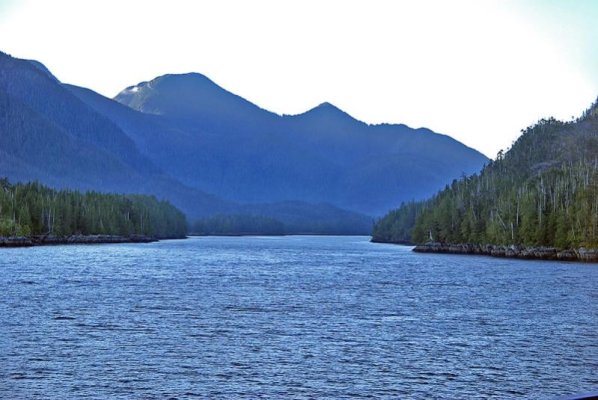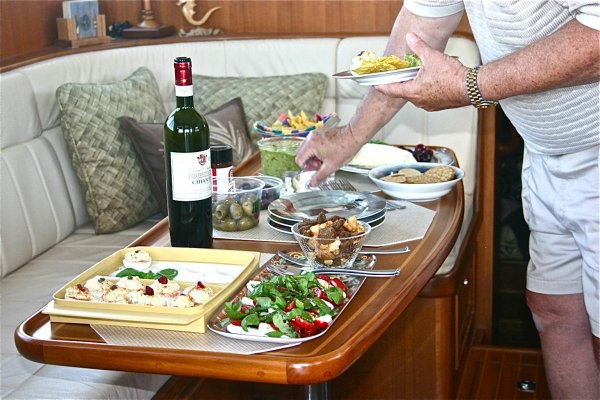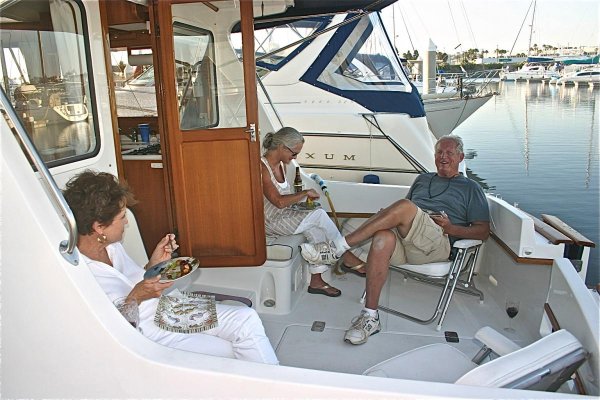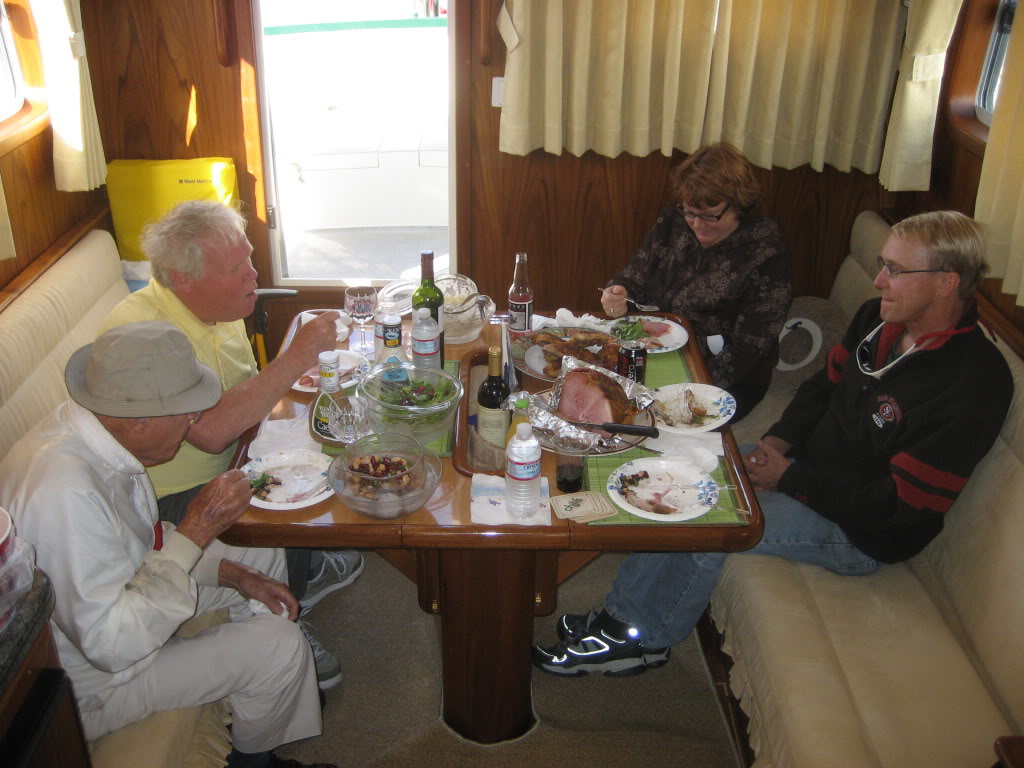GMB---- There actually
is a little book on maneuvering with twin engines. I bought a copy when we got our boat and read it some of it but in reality we just taught ourselves. If I can find it at home I'll post the title and author although I don't believe boat maneuvering is something you can learn from a book; you just have to go do it.
I do not adhere to the notion that a twin is easier to maneuver than a single or that it can do things a single can't. Well, there's one and that's cost you more money.

But anything you can accomplish with a twin you can accomplish with a single. The means to accomplish it will in some cases be different but the end result will be the same. Throw in a bow thruster on the single and it will do some things you can't do at all with a twin unless the twin has a bow thruster, too.
A twin is not any sort of miracle cure for tricky maneuvering situations. In fact I feel fairly safe in saying we've seen more people get into trouble docking their twin engine boat than we've seen mess up docking their singe engine boat.
About the only significant thing in my opinion a twin can do that a single without a thruster can't is pivot more or less within its own length without the need to back and fill.
The other thing you can do with a twin that you can't really do with a single (I don't think) is "walk" it sideways into a dock. You can do this because you can alternate the opposing thrust to sort of see-saw the boat sideways at least for a short distance until other things--- wind, current, the not-dead-center position of most boats' center of yaw---- mess it up.
There are people who claim that they can move a twin straight sideways (like with a bow and stern thruster together) using the two engines only. I personally think this is BS and that what they're really doing is walking the boat in. I have had a couple of very, very good and experienced boat handlers tell me how to move our boat straight sideways up to a dock and then when I couldn't do it got on to show me how and they couldn't do it either. The boat always ended up angling one way or the other. So the walking thing, yes, the straight sideways thing, no.
It can also be handy to use power on only one side or the other when docking to help adjust the rate of turn or "sideways slide" as we enter a slip or angle into a dock. But that's a developed feel thing, not something that one can say "do this and this will happen" because every boat will respond differently depending on prop placement, distance between the props, distance the props are from the keel and the corners of the boat, the location of the boat's center of yaw of the boat, etc.
There are mental images one can use to visualize how to manipulate the shifters to get the desired result in a twin. My wife used the imagined movement of her hips when she pulled the shifters back or moved them forward. I visualized driving a bulldozer as this was the way it was explained to me when we sea-trialed our boat and the analogy worked for me. And I've heard about other images too.
But it didn't take long before it all became automatic and neither my wife nor I had any need of a visual analogy to guide us into how to move the shifters to get the result we wanted.
Best thing, I think, if you don't have a twin engine boat but are curious about how the differential thrust thing works is to go out with someone who has a twin and is real good with it.
The most important thing I've learned so far with regards to maneuvering a twin (or a single) is don't rush. Things don't happen that fast with a 30,000 pound boat, even if there's a decent wind or current. I've watched twin-engine operators come in, get a little screwed up, and start frantically see-sawing back and forth on the shifters, revving the engines, and so on.
All this does is subject the transmissions to more wear and shock and mess up the maneuver even more.
It's imperative, I think, to have a good mental picture of how the wind or current or both is going to affect your boat long before you get to the dock or slip. OFB described the importance of this in a post in another thread (or maybe it was this one).
If you have learned how your boat responds to opposed thrust or thrust on just one engine, and how opposed thrust plus the rudder affects the pivot rate, and how using the "inside" engine to continue a turn but slow the rate down as opposed to using the "outside" engine, you can then visualize how your boat is going to respond to what you do in a particular current, wind, etc. situation.
And if you can do
that, then you can plan exactly what you're going to do with the shifters and rudder and throttles beforehand. And the more experience you get, the more you will be right, and the docking will be a total non-event.
But if you wait until you are actually entering the maneuvering situation to decide what you're going to do, the odds of screwing it up go way up unless you are so in tune with your boat and how it reacts that you don't need any plan-ahead time. The commercial tug and fishboat people who maneuver their boats day after day after day seem to be like this. Most recreational boaters, including me, aren't.













